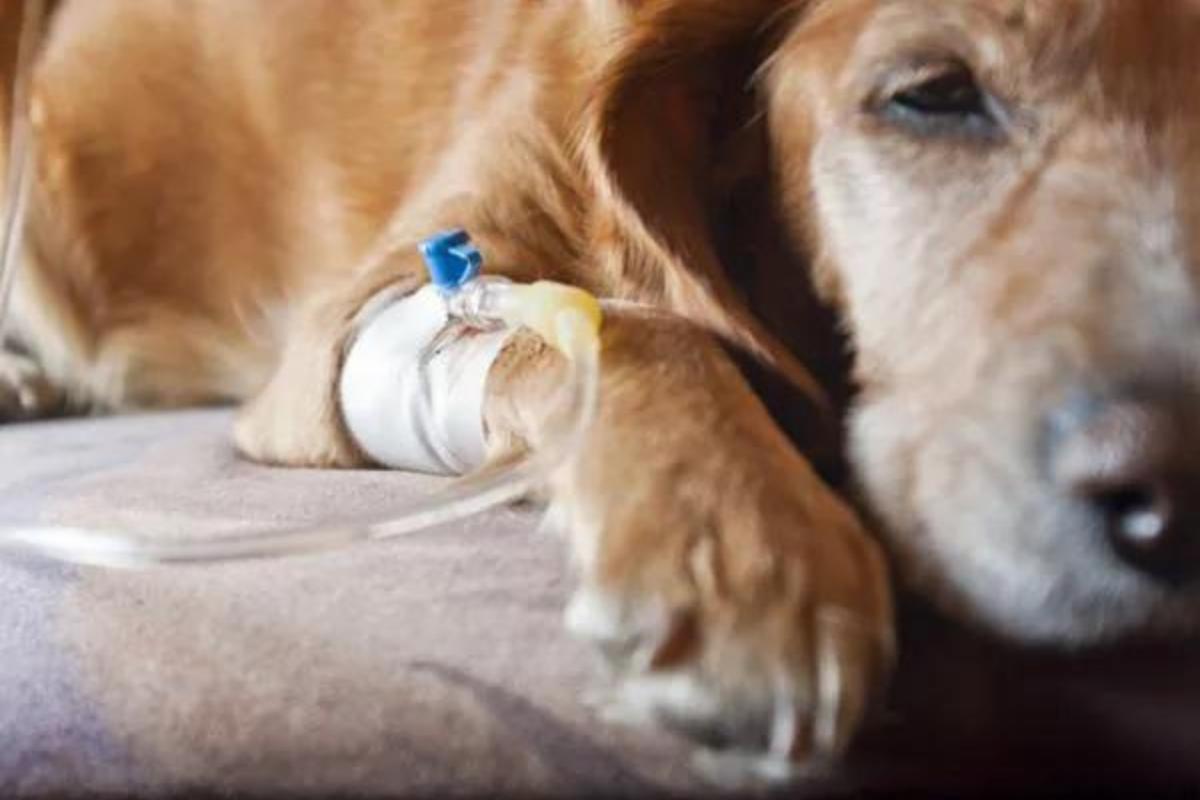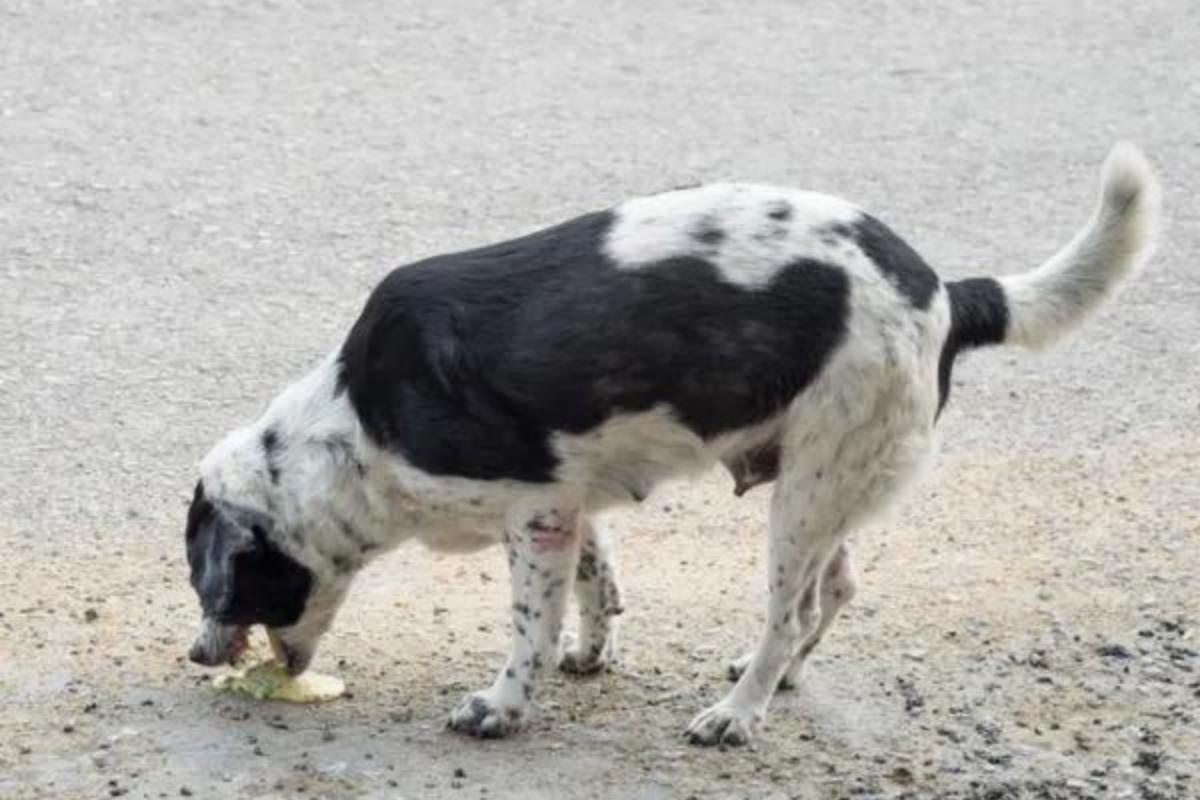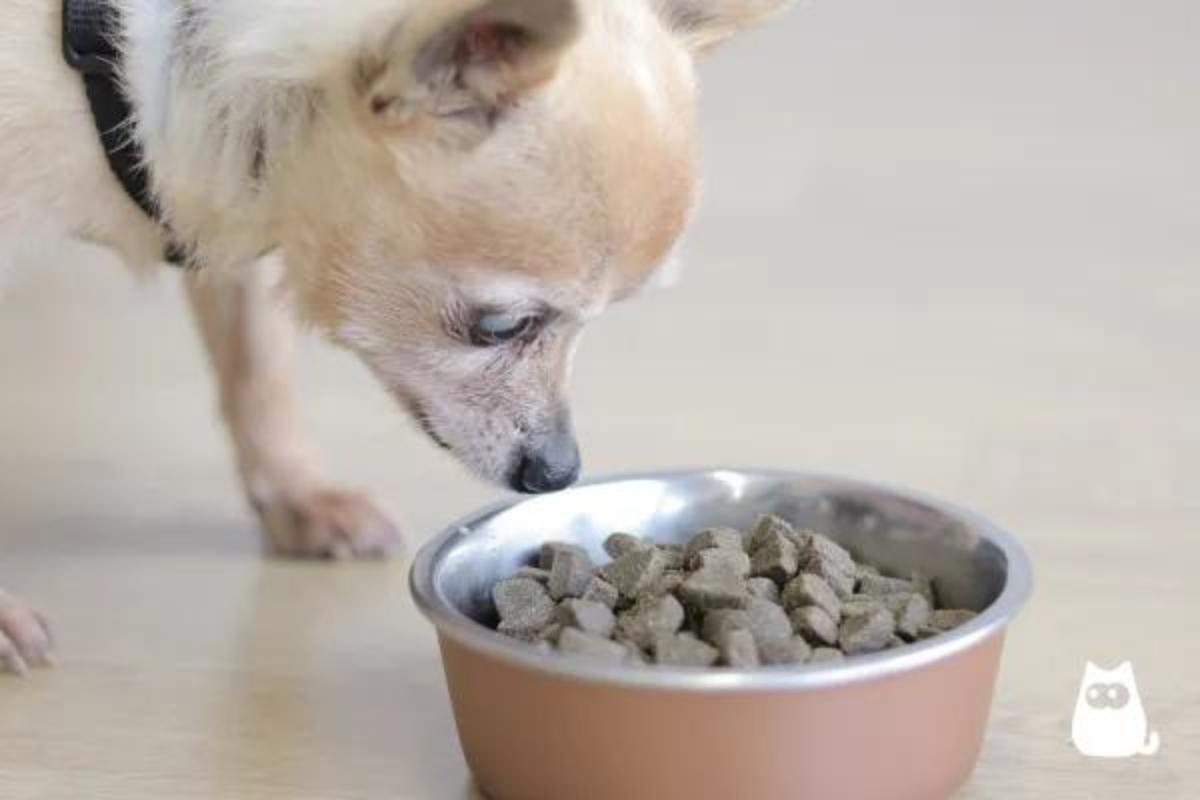Diarrhea in Elderly Dogs - Types, Causes and Treatment



See files for Dogs
Diarrhea in older or geriatric dogs is a common reason for consultation at the small animal clinic. While dogs of any age may occasionally suffer from diarrhea, diarrhea in older dogs may indicate other medical problems. This is a clinical sign that can be associated with many diseases, not just the digestive system. Determining the specific cause of the diarrhea is critical to determining the most appropriate treatment.
This AnimalWised article explains what causes diarrhea in older dogs and how it can be treated.
Types of diarrhea in older dogs
Diarrhea is the result of more rapid movement of fecal matter through the intestines in conjunction with decreased absorption of water, nutrients, and electrolytes. Before we look at the various factors that can cause diarrhea in older dogs, it is important to distinguish between the different types of diarrhea.
First, diarrhea in dogs is divided into three main categories: Large intestinal diarrhea, small intestinal diarrhea, or a combination of both.
- Large intestinal diarrhea/colonic diarrhea: it typically presents a "normal" color, mucus and/or fresh blood. The stool volume is normal, but the frequency of defecation is increased.
- Small intestinal diarrhea: it is light brown or yellowish, stool volume is increased, and it may contain undigested food, foam, digested blood (melena), or fat (steatorrhea).
The condition is then further divided into chronic diarrhea, acute diarrhea, or intermittent diarrhea.
- Acute diarrhea: diarrhea that lasts less than 2 weeks. Symptoms usually develop quickly and are accompanied by poor overall health.
- Chronic diarrhea: lasting longer than 2 weeks. Symptoms develop slowly and the general condition of the animal gradually deteriorates. Chronic diarrhea is persistent or recurs despite initial treatment. Chronic diarrhea in dogs can sometimes result in weight loss, a dry and unruly coat, and lethargy.
- Intermittent diarrhea: can occur in both the large and small intestines, and it comes and goes.
It is important to know the different types of diarrhea because each type requires different tests and treatment. Read this other article if you wish to know more about the different types of diarrhea in dogs.

Inflammatory bowel disease or IBD
Inflammatory bowel disease (IBD) is one of the most common causes of chronic diarrhea in adult and senior dogs. IBD is a syndrome rather than a disease. The syndrome is caused by a specific reaction to a chronic irritation of the intestinal tract. This inflammatory process prevents the absorption of nutrients in the intestines and causes chronic diarrhea.
To date, the disease is considered idiopathic, meaning it is of unknown origin. It is believed to be a multifactorial process involving immunologic, allergic, dietary, or bacterial factors.
IBD can affect any part of the gastrointestinal tract, but most commonly involves the stomach and/or intestines. It can also affect the small intestine, the large intestine, and in some cases, both:
- Small intestine IBD: There may be chronic diarrhea (with mustard-colored watery stools), bilious vomiting on an empty stomach, weight loss, and chronic abdominal pain. The abdominal pain may manifest as unnatural positions or movements, or seizures (not to be confused with epileptic seizures).
- Large intestine IBD: The dogs will mostly experience chronic diarrhea (with abundant mucus and fresh blood), tenesmus (constant urge to defecate) and increased bowel movements, but they usually do not experience vomiting or weight loss.
Diagnosis for IBD begins with stool examinations, blood tests, and imaging of the bowel by x-ray or ultrasound. Tissue biopsies are performed to definitively diagnose the specific type of IBD. Taking these samples is a surgical procedure that requires general anesthesia.
Treatment of IBD depends on the individual case, the age of the dog, and the severity of the disease, but frequently includes a combination of the following measures.
- Dietary treatment: A Depending on test results and which part of the intestine appears to be affected, special diets may be used as a therapeutic trial. These diets include hypoallergenic foods, low-residue diets, or high-fiber diets.
- Pharmacological treatment: It is based on the use of immunosuppressive and anti-inflammatory drugs. The treatment of choice for both types of IBD is prednisone. However, there are other drugs such as cyclosporine, azathioprine, metronidazole, or sulfasalazine that can be used alone or in combination to treat IBD. Probiotic supplements may also be recommended.
- Vitamin treatment: supplementation with B12 (cobalamin) may be considered, as most dogs with inflammatory bowel disease cannot absorb this important vitamin.
However, we must know that these treatments are not curative, but only symptomatic. Therefore, relapses are common. Take a look at the following AnimalWised article to learn more about inflammatory bowel disease in dogs.

Intestinal tumors
Intestinal tumors can also cause chronic diarrhea in adult and older dogs. Intestinal tumors result from the abnormal proliferation and dysregulated replication of cells anywhere in the intestinal tract, which includes the small and large intestines. Most tumors of the digestive tract are malignant, invasive and tend to spread to other parts of the body.
As with IBD, tumors are classified according to the section of the intestine they affect:
- Tumors in the small intestine: mainly carcinomas and lymphosarcomas. Both cause chronic diarrhea, vomiting, altered appetite, weight loss, and abdominal pain. Read this other article to learn more about how to care for a dog with lymphoma.
- Tumors in the large intestine: these can be adenomas, carcinomas, lymphosarcomas, leiomyomas, leiomyosarcomas or stromal tumors. Such a tumor may cause mucus and fresh blood in the stool, pain during defecation, and constant urge to defecate.
Occasionally, in both cases, the abdomen may be distended due to fluid accumulation in the abdomen.
As for diagnosis, blood, and urine tests are helpful in determining the changes associated with paraneoplastic syndromes. Radiographs may show a mass in the abdomen. Ultimately, the final diagnosis is made by biopsy, as this is the only way to accurately determine the nature of the tumor. The biopsy may be obtained by endoscopy or exploratory laparotomy.
Treatment of intestinal tumors depends on the type of tumor and the extent of its growth and spread, but can generally be summarized in two strategies:
- Surgical removal: for most colorectal tumors, surgery is the treatment of choice. In some cases, surgery may be accompanied by chemotherapy or radiation therapy. Prognosis is good after surgery.
- Chemotherapy: Usually, lymphoma is treated with chemotherapy, whether the tumor is removed. In some cases, radiation therapy may also be recommended. Prognosis is moderate despite treatment.

Intestinal polyps
Rectal and intestinal polyps are a rare condition in older dogs and cats. An intestinal polyp is a growth of non-tumor origin that usually occurs in the mucosa of the colon or rectum, but can also occur in the small intestine. The larger the polyp, the greater the potential for malignancy. These polyps can cause the following symptoms:
- Chronic diarrhea
- Constant urge to defecate
- Rectal bleeding
- Dark stools
- Vomiting
To diagnose, your veterinarian will perform a thorough physical examination of your dog, taking into account the history of symptoms and possible incidents that may have triggered this condition. Diagnosis often requires endoscopy, biopsy and histopathological analysis to confirm that the lesion is non-tumorous.
The treatment of intestinal polyps is surgical and consists in the resection of the affected part of the intestine. This removal can be done endoscopically or with an electric needle or probe.

Chronic kidney disease (CKD)
Chronic kidney disease (CKD) is a disease characterized by progressive and irreversible loss of renal function. By definition, CKD is the inability of the kidneys to efficiently filter the blood of waste products. Most dogs with kidney failure produce large amounts of urine, but the body's toxic waste products are not effectively eliminated. It is one of the most important diseases in geriatric dogs. So much so that it is the third leading cause of death in these animals.
While it is a disease that affects the kidneys, it produces a wide range of symptoms that can affect multiple organs, including the digestive system. Among other symptoms, dogs with CKD experience an accumulation of urea and creatinine in the blood (azotemia), which can lead to diarrhea.
In terms of the diagnosis, there are two basic tests for kidney function: a complete urinalysis and a blood chemistry analysis. An urinalysis is required to assess kidney function, while a blood biochemical analysis assesses the function of various internal organs.
Even though it is an incurable disease, a number of measures can be taken to enhance the quality of life of the dog as much as possible. These include medications, dietary, and lifestyle changes to slow the progression of the disease, and symptomatic treatment to relieve the animal's clinical signs (including diarrhea).
Treatment of CKD specifically includes:
- Medical treatment: water and acid-base balance must be restored with fluid therapy, and hypertension must be treated with vasodilators.
- Dietary treatment: a special diet high in omega-3 fatty acids, antioxidants and soluble fiber, and a reduction in sodium. Phosphorus and protein should be introduced.
To learn more about this disease and how to best care for your dog, read this article on kidney failure in dogs.

Liver disease
The liver is an important organ because it performs several functions, it helps with digestion, blood clotting and removal of toxins from your dog's body. When the liver is not working properly, less bile salts are produced or bile does not reach the intestines (cholestasis), resulting in poor fat digestion and diarrhea in the small intestine.
Diarrhea usually occurs along with other non-specific clinical symptoms, such as:
- Vomiting
- Weight loss
- Yellow eyes, tongue, or gums
- Blood in the urine or stool
- Increased thirst
Treatment of this condition consists of treating the specific liver or biliary disorders that cause the diarrhea, such as:
- Pharmaceutical and/or surgical treatment.
- Liver protective agents such as milk thistle, which may help the liver recover.
- Your dog may need a special diet to make sure they are getting the nutrients and calories they need to help their liver. It should consist of easily digestible carbohydrates and moderate fat.

Exocrine pancreatic insufficiency
Exocrine pancreatic insufficiency may be another cause of diarrhea in older dogs. As a result of this disease, pancreatic enzymes which are essential for digesting carbohydrates, proteins, and fat do not synthesize or secrete as they should. The absence of these enzymes prevents the digestion and absorption of nutrients, resulting in the following symptoms:
- Chronic diarrhea
- Severe weight loss
- Insatiable appetite
Treatment consists of administering pancreatic enzymes with the food. This is a lifelong treatment, although the prognosis is good and dogs usually do very well after enzymes are added to their diet.

Other causes
In this article, we have described the main causes that can cause diarrhea in older dogs. There are a number of other factors that can cause this clinical picture in dogs, regardless of their age:
- Sudden changes in diet: dogs have a digestive system that is particularly sensitive to even small changes in their diet. For this reason, it is important to mix the new food with the previous food whenever a change in diet is made and gradually increase the amount of the new food as the animal tolerates it. For homemade rations, each time a new food is introduced, do so in small amounts. Read this other article to learn what kind of food you should give your dog with diarrhea.
- Infectious gastroenteritis: both bacterial (e.g., salmonellosis) and viral (e.g., canine distemper).
- Intestinal parasites: by protozoa, nematodes or cestodes, in animals that are not properly dewormed. If you want to know more about prevention and treatment of parasites, do not miss this other article about deworming dogs.
This article is purely informative. AnimalWised does not have the authority to prescribe any veterinary treatment or create a diagnosis. We invite you to take your pet to the veterinarian if they are suffering from any condition or pain.
If you want to read similar articles to Diarrhea in Elderly Dogs - Types, Causes and Treatment, we recommend you visit our Intestinal problems category.
- Strombeck, DR, Guilford, WG, & Taibo Ruben A. (1995). Digestive diseases of small animals (2nd ed.). Inter-Medical.












